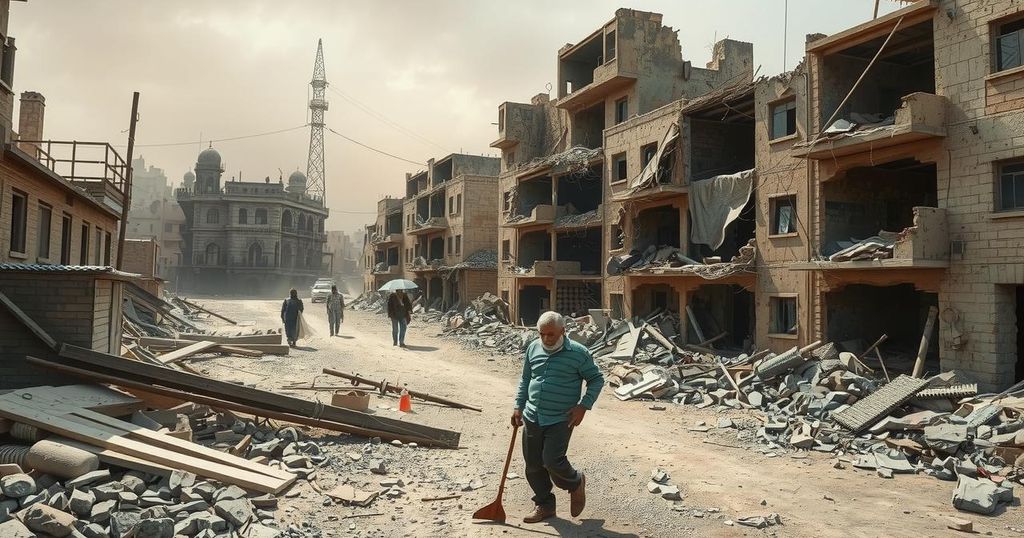Escalation of U.S. Bombing in Yemen Further Complicates Humanitarian Crisis
The U.S. bombing campaign in Yemen has escalated, leading to increased civilian casualties and a worsening humanitarian crisis. Human rights groups express concern over the impacts of U.S. military actions, compounded by funding cuts and increased restrictions on aid organizations. The operational environment for humanitarian efforts in Yemen has become exceedingly difficult amidst ongoing conflict.
The recent escalation of the U.S. bombing campaign in Yemen has raised significant concerns among rights groups and humanitarian workers. This increase in military action comes at a time when the country is already grappling with severe humanitarian crises exacerbated by cuts in aid under the Trump administration. Civilians are suffering amidst the conflict, with one local charity director expressing the unpredictability of the situation, stating, “Now the rampant bombing has started, you never know which way things will go.”
According to reports, U.S. airstrikes have been targeting the Houthi movement which dominates large parts of Yemen. President Trump has expressed a willingness to use military force, suggesting that he intends to retaliate against the Houthis for their perceived threats to commercial shipping in the Red Sea. Details regarding the military operations were publicly exposed due to a journalist’s accidental inclusion in a private chat with senior U.S. officials, revealing a lack of concern for civilian casualties.
Targeted strikes have hit both Sana’a, Yemen’s capital, and other urban areas, raising concerns about civilian harm. Human rights researchers have criticized the Houthis for restricting access to bomb sites and hospitals, complicating efforts to assess the true impact on civilians.
Reports indicate that the bombing has resulted in numerous civilian casualties, with monitoring groups documenting at least 25 civilian deaths, including children. One airstrike reportedly hit a residential area, resulting in multiple civilian casualties. Despite reports of destruction and loss of life, U.S. defense officials claim that assessments do not indicate civilian harm and that updates on damages may only be available after operations conclude.
The ongoing violence has decimated Yemen’s economy, leaving millions dependent on aid. Approximately 19 million people, including 15 million women and children, are in dire need of assistance. The humanitarian sector is further strained due to aid cuts and the legal risks associated with working in Houthi-controlled areas. Concerns persist that continued bombardment may lead to a catastrophic humanitarian crisis.
Aid workers describe an increasingly difficult environment where they contend with bureaucratic constraints, bombing threats, and restrictions from the Houthis. The combination of hostility from various factions and diminishing resources has created a daunting task for humanitarian agencies trying to deliver services.
Finally, the effectiveness of U.S. military action has been questioned, especially in the absence of ground troops. Experts suggest that previous efforts have not significantly weakened the Houthi group despite extensive military campaigns.
The intensified U.S. bombing campaign in Yemen is exacerbating the already critical humanitarian situation, particularly following the reduction of aid. With civilian casualties rising and humanitarian organizations struggling to operate under increased pressure, the potential for widespread catastrophe looms. The situation underscores the urgent need for a concerted international response to address the escalating crisis and to prioritize the safety and welfare of civilians in the region.
Original Source: www.theguardian.com




Post Comment